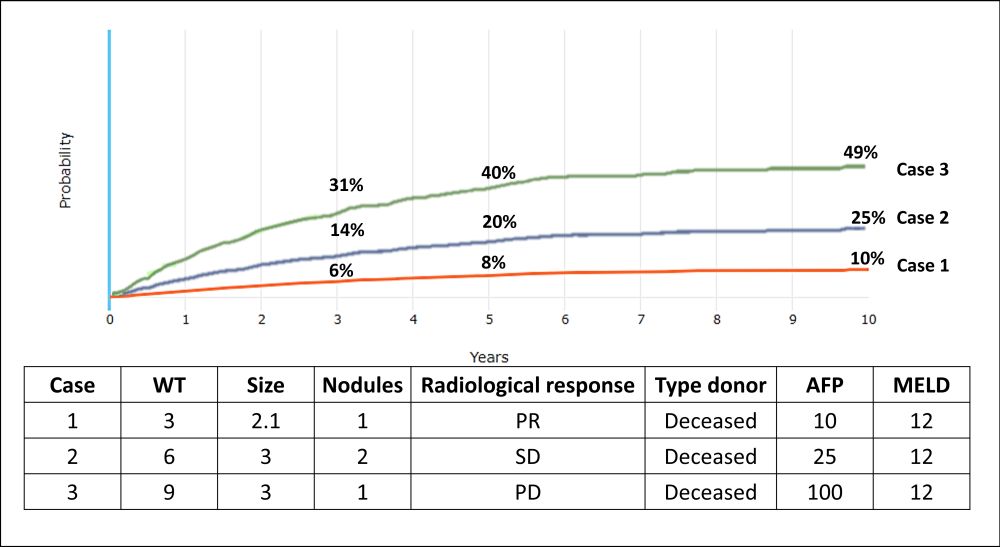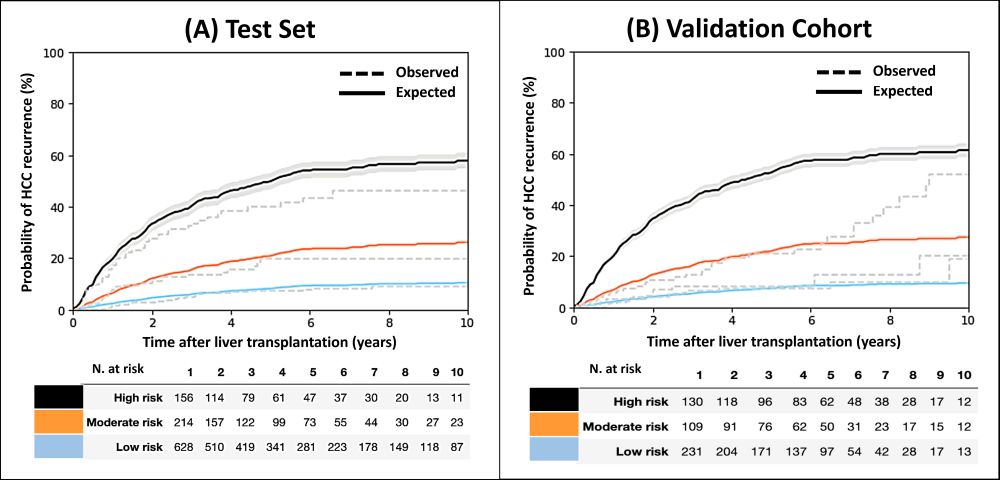Development and validation of an artificial intelligence model for a better prediction of hepatocellular cancer recurrence after transplantation: a retrospective international study
Quirino Lai1, Jean Emond2, Prashant Bhangui3, Toru Ikegam4, Benedikt Schaefer5, Maria Hoppe-Lotichius6, Takashi Ito7, Marco Vivarelli8, Emmanuel Tsochatzis9, Chung Mau Lo10, Chao-Long Chen11, Umberto Cillo12, Matteo Ravaioli13, Jan P Lerut14.
1Sapienza University, Rome, Italy; 2Columbia University, New York, United States; 3Medanta-The Medicity, Gurgaon, India; 4Kyushu University, Fukuoka, Japan; 5University of Innsbruck, Innsbruck, Austria; 6Universitätsmedizin Mainz, Mainz, Germany; 7Graduate School of Medicine, Kyoto, Japan; 8Polytechnic University of Marche, Ancona, Italy; 9Royal Free Hospital, London, United Kingdom; 10University of Hong Kong, Hong Kong, Hong Kong; 11Chang Gung University College of Medicine, Kaohsiung, Taiwan; 12University of Padua, Padua, Italy; 13Bologna University, Bologna, Italy; 14Université catholique de Louvain, Brussels, Belgium
EurHeCaLT and the West-East LT Study Group.
Background & Aims: Identifying patients at high risk for recurrence of hepatocellular carcinoma (HCC) after liver transplantation (LT) is a challenging issue. The present study aims to develop and validate an accurate post-LT recurrence prediction calculator using the machine learning method.
Methods: 3,326 HCC patients transplanted during the period 2000-2018 in 17 North American, European, and Asian centers composed the International Cohort. The external Validation Cohort consisted of 470 HCC patients transplanted at the Bologna University during the same period. The International Cohort was split to generate a Training and a Test Set (70/30%). Analyzing the Training Set data with a Cox proportional hazards deep neural network, the Time_Radiological-response_Alpha-fetoproteIN_Artificial-Intelligence (TRAIN-AI) model was developed. The Test Set and the Validation Cohort were used for internal and external validation of the model. The prognostic ability of the TRAIN-AI was compared to other currently available recurrence risk algorithms.
Results: The TRAIN-AI model showed very good c-statistics, with areas under the curve of 0.78 (95%CI=0.73-0.82) and 0.67 (95%CI=0.64-0.74) in the Test Set and the Validation Cohort, respectively. The TRAIN-AI always significantly outperformed the other scores in both the internal and external validation cohorts. Application of the TRAIN-AI model in individual patients allowed to calculate the expected recurrence after LT. Some examples of the application of the model are displayed in Figure 2, in which specific values of the seven variables composing the model were proposed.

The expected vs. the observed recurrence rates in the (A) Test Set and (B) Validation Cohort were investigated. In the Test Set, the calibration of the prediction model was excellent, with expected survivals that matched closely the observed survivals. In the Validation Cohort, the overall calibration of the prediction model was satisfactory.

Conclusions: The proposed TRAIN-AI score had a higher accuracy than other available criteria regarding post-LT recurrence risk. Further validation of the model is required. A web calculator has been developed to improve the user-friendly availability of the model (https://www.train-ai.ml).

right-click to download
